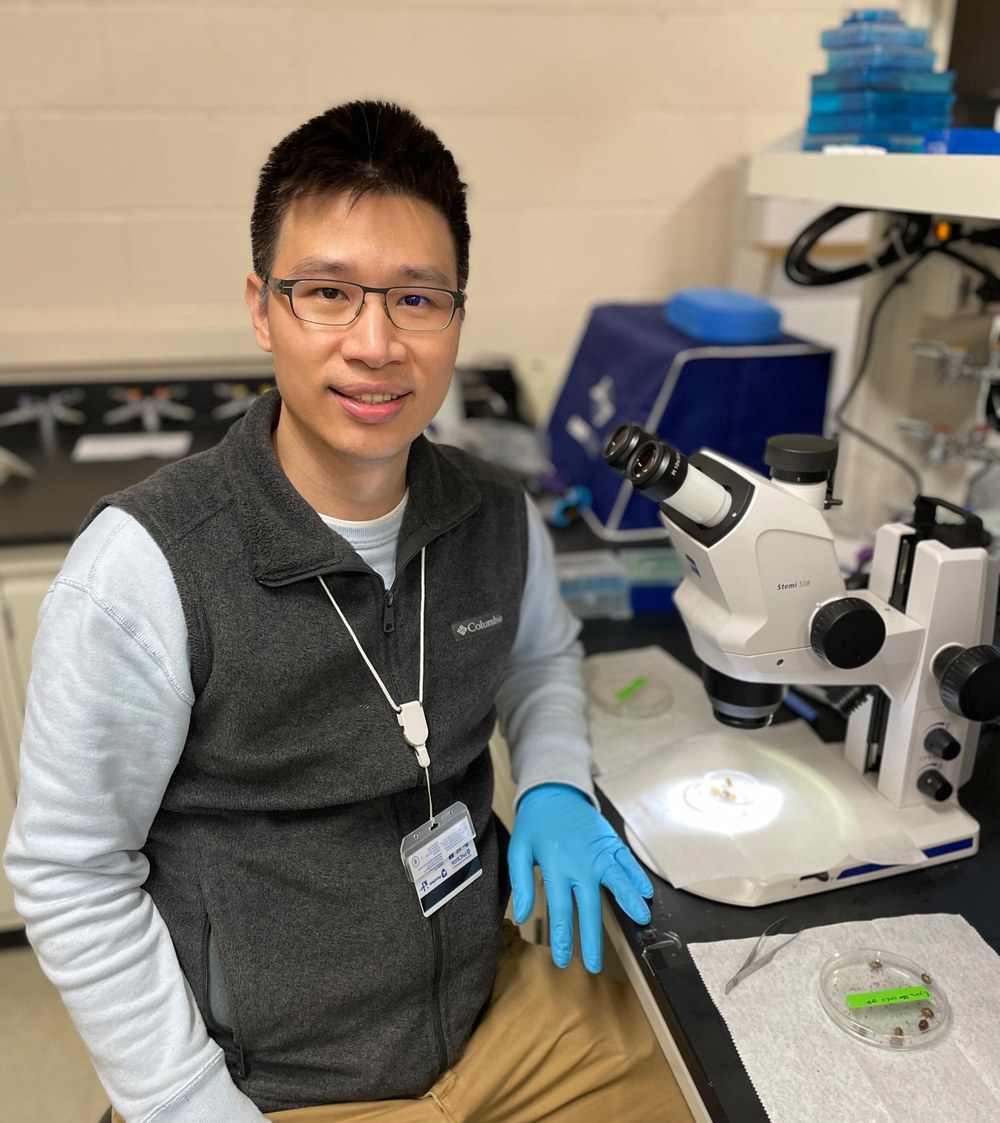This is the fourth short news article written by students, during the professional development class of Spring 2024, about each other's research.

David Chen
Student Spotlight-David Chen
By Jared Griffin
Imagine a world where a dangerous, insatiable pest consumes its unlucky victim to its heart’s desire. Even worse, whenever a counterattack is mounted, the pest just shrugs it off and continues feasting. This is the world we live in. The Colorado Potato Beetle (CPB) is an infamous pest of potatoes, and it is highly resistant to pesticides. David Chen, an Entomology PhD student in Professor Rose Zhu’s research group at Penn State, is working to find out how this pest can detoxify so many pesticides.
David is interested in researching this pest because it contributes to the ongoing issue of crop shortages, and it seems to gain pesticide resistance quickly. “Traditionally people use chemical pesticides to kill CPB. However, because CPB populations are evolving resistance to pesticides the concentration of the pesticides that people need to use to kill them have become higher and higher” says David. David seeks to understand the genes that make CPB resistant to pesticides. If we can regulate these genes, we can potentially regulate the pest.
How is the beetle able to detoxify pesticides in the first place? David hypothesizes that CPB is able to manufacture proteins that make the pesticides harmless to the beetle. He plans to first find potential resistance genes by digging through the NCBI website (a public database where genetic information is compiled). Then he will apply genetic editing methods (like RNAi and CRISPR) to deactivate the genes. Once this is done, toxicity assays using pesticides can be carried out to confirm that these genes are indeed responsible for making the beetles resistant to the pesticides.
Once these genes are identified and tested, further work can be done. Bacteria can be used to produce large amounts of these detoxification proteins. This method will allow the desired proteins to be produced, purified, and then tested to understand exactly how they can make these pesticides less toxic.
David is excited to make discoveries. “My research is important to farmers since it can help us develop new ways to control CPB.” says David. David also notes that the methods he is using can be extended to other insects, and so his project may lead to new approaches to manage many different kinds of pests.
David Chen is a PhD student in Professor Rose Zhu’s research group in the Department of Entomology at Penn State. His work is supported by funding from the National Science Foundation.

